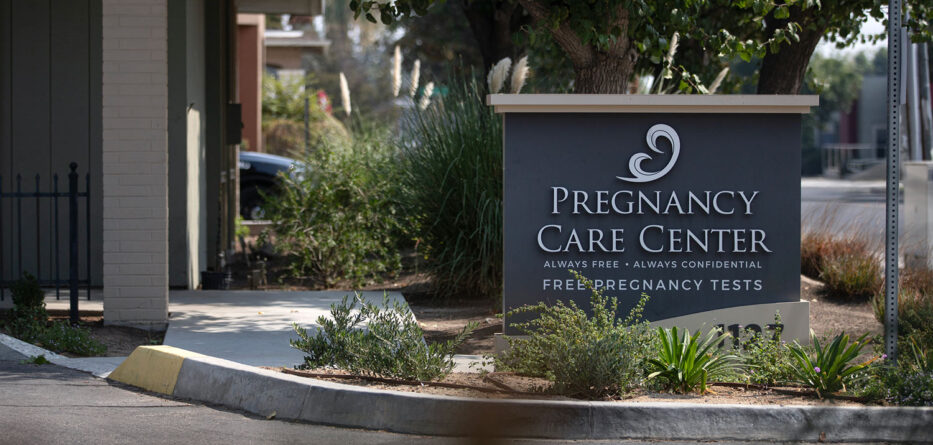Kristen Hwang
CalMatters
In its continued battle to bulletproof the right to abortion, California is suing two major anti-abortion groups over claims made about the viability of “abortion pill reversal,” Attorney General Rob Bonta announced Thursday September 21.
Heartbeat International, a national anti-abortion group, and RealOptions Obria, a chain that operates five crisis pregnancy centers in Northern California, both promote services to “reverse” the medication abortion process. Bonta is suing both groups in Alameda Superior Court under the state’s False Advertising and Unfair Competition laws.
“(Heartbeat International) and RealOptions took advantage of pregnant patients at a deeply vulnerable time in their lives, using false and misleading claims to lure them in and mislead them about a potentially risky procedure,” Bonta said in a statement. “We are launching today’s lawsuit to put a stop to their predatory and unlawful behavior.”
The 30-page complaint alleges the two organizations use fraudulent and misleading claims to promote the safety and efficacy of an experimental hormone therapy to stop medication abortion from proceeding.
In a statement, a representative for Heartbeat International said the organization learned about the lawsuit through media requests and has not yet been served. The statement says more than 4,500 women have had “successful abortion pill reversals.”
“Through our Abortion Pill Rescue Network hotline, we know that some women almost immediately regret their chemical abortion choice,” the statement said. “These women deserve the right to try and save their pregnancies. No woman should ever be forced to complete an abortion she no longer wants.”
RealOptions Obria did not respond to a request for comment before publication.
Medication abortion typically involves two drugs — mifepristone and misoprostol — taken between 24 to 48 hours apart, according to the FDA. Mifepristone, which is taken first, inhibits the body’s ability to use the pregnancy hormone progesterone, while misoprostol causes the uterus to contract and expel the contents similar to a miscarriage, according to the American College of Obstetricians and Gynecologists.
The advertised “abortion pill reversal” service administers extra progesterone to people who have taken mifepristone but have not yet taken the second drug, according to the complaint and materials published by both organizations. RealOptions’ website characterizes it as an “effective process” and states “IT MAY NOT BE TOO LATE TO SAVE YOUR PREGNANCY.” Heartbeat International runs the national hotline known as the Abortion Pill Rescue Network that local crisis pregnancy centers like RealOptions direct pregnant people toward.
The lawsuit accuses the two organizations of preying on “emotionally vulnerable individuals” and argues the organizations illegally advertise the service as a viable option without noting possible side effects such as the risk of severe bleeding.
“Defendants attract these individuals through multiple misrepresentations and pressure them by claiming they must start treatment as quickly as possible, further exploiting these individuals’ heightened emotional state,” the lawsuit states.
Study on ‘abortion pill reversal’ stopped
Proponents of “abortion pill reversal,” including those who say they have benefitted, frequently reference the use of progestin therapy to prevent preterm birth and research conducted by San Diego physician George Delgado, to support its safety. Delgado’s studies use very few patients and have been widely condemned by the medical community, including the American College of Obstetricians and Gynecologists and New England Journal of Medicine, as having no merit or broad applicability. Dr. Mary Davenport, a licensed physician in California, also contributed to Delgado’s studies and is the medical director of two of RealOption’s clinics.
The only study designed to rigorously test the effectiveness of the procedure was stopped early citing “safety concerns” after three women experienced severe hemorrhaging and were transported to the hospital. “We halted enrollment after the third hemorrhage,” the authors said in the journal Obstetrics & Gynecology.
The lawsuit accuses RealOptions of misleading pregnant people about the possibility of serious side effects by failing to disclose the potential for severe bleeding.
Numerous studies show the two-pill abortion protocol, which has been approved by the FDA for more than 20 years, will terminate a pregnancy between 95% to 98% of the time. Those who take only the first pill and not the second will continue pregnancy about 50% of the time, according to the American College of Obstetricians and Gynecologists, roughly the same success rate that “abortion pill reversal” advocates claim.
Crisis pregnancy centers, which do not provide abortions but may provide some medical services such as pregnancy tests and ultrasounds, have long been a thorn in the side of abortion advocates in California. The U.S. Supreme Court sided with abortion opponents in 2018, striking down a California law that required crisis pregnancy centers to notify clients about birth control and abortion options. The decision significantly chilled legislative efforts to rein in the centers’ practices.
Cathren Cohen, a staff attorney at the Williams Institute and the Center on Reproductive Health, Law, and Policy at UCLA, told CalMatters in June that legislators and advocates were concerned about creating bad precedent.
“The anti-choice movement is very litigious. They know the federal courts are on their side,” Cohen said.
Crisis pregnancy center legislation
Two bills aiming to increase transparency about crisis pregnancy centers’ services and goals were quietly killed in the Legislature earlier this year. One of the authors, Assemblymember Pilar Schiavo, a Democrat from Santa Clarita, said in a statement she was grateful for Bonta’s lawsuit because “abortion pill reversal” is “one of the most dangerous procedures (crisis pregnancy centers) offer.”
“It’s disturbing that their anti-abortion ideology outweighs science and the safety of women,” Schiavo’s statement said. “I am hopeful that in the next legislative session, we will take on this entire industry, whose main goal is undermining a woman’s right to choose and blocking access to abortion care.”
Assemblymember Rebecca Bauer-Kahan, a Democrat from Orinda, ran a measure earlier this year that ultimately died in committee, attempting to strengthen the state’s false advertising law to specify that businesses could not make misleading statements about abortion. In a statement to CalMatters, Bauer-Kahan characterized the claims made by crisis pregnancy centers as “predatory and deceptive.”
“In some of their most difficult moments, pregnant people are being misled and endangered,” Bauer-Kahan’s statement said. “It’s time to do something, and I’m proud California is fighting to end these lies.”
The centers, which are often religiously affiliated and connected to national organizations like Heartbeat International, have proliferated in California in recent years. While less than 62% of counties have an abortion clinic, nearly 80% have a crisis pregnancy center, according to a database compiled by CalMatters. In rural areas where there are acute primary care shortages, the centers outnumber abortion clinics 11 to two.
Heartbeat International has more than 90 affiliate pregnancy centers in California. Obria, which operates nationwide and is associated with the five Northern California clinics named in the lawsuit, has five additional affiliates in the state.
“The horrifying reality is that right now there are more crisis pregnancy centers in California than abortion care clinics,” Bonta said during a press conference Thursday. “Crisis pregnancy centers do not provide abortion or abortion referral, though they may want you to believe they do.”
Supported by the California Health Care Foundation (CHCF), which works to ensure that people have access to the care they need, when they need it, at a price they can afford. Visit www.chcf.org to learn more.






